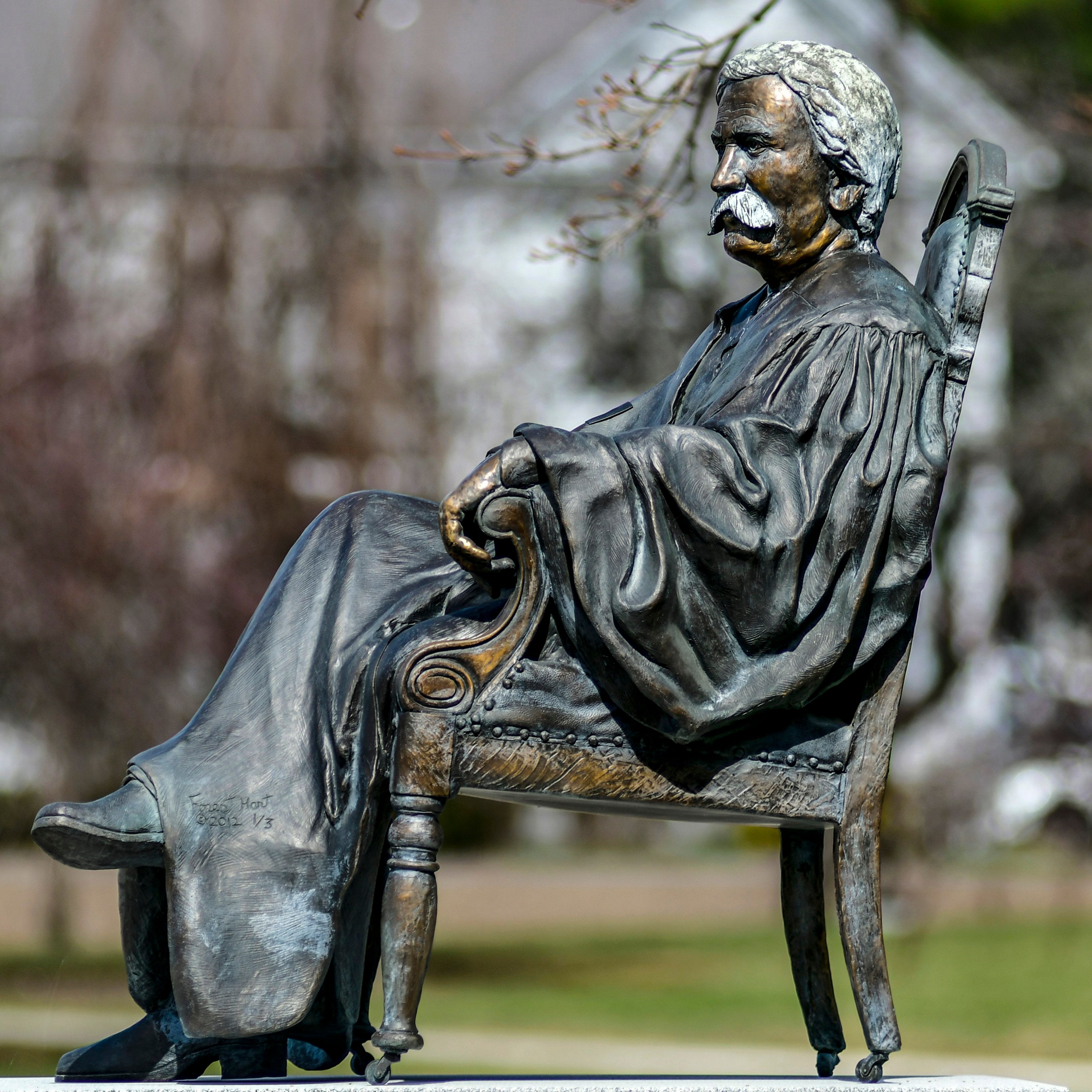Donor may take back statue of justice in Plessy v. Ferguson
The donor of a statue in Maine of the chief justice who served when the U.S. Supreme Court legalized racial segregation is willing to take it back

The donor of a statue of the chief justice who served when the U.S. Supreme Court legalized racial segregation in 1896 might be willing to take it back.
The Kennebec County Board of Commissioners voted in February to move the statue of Melville Fuller, which sits in front of the county courthouse in Maine’s capital.
Stephen Smith an attorney representing Robert Fuller Jr., suggested Thursday his client is willing to take back his 2013 gift and figure out a new location, the Kennebec Journal reported.
“That just might solve a whole bunch of problems, at least from a practical perspective,” he said. “And then we can move on to bigger and better things.”
Fuller, an Augusta native, was the chief justice of the nation’s highest court when it decided the Plessy v. Ferguson case.
That decision established the separate-but-equal doctrine that permitted racial segregation and allowed for the passage of Jim Crow laws. It was overturned in 1954 by the landmark Brown v. Board of Education decision.